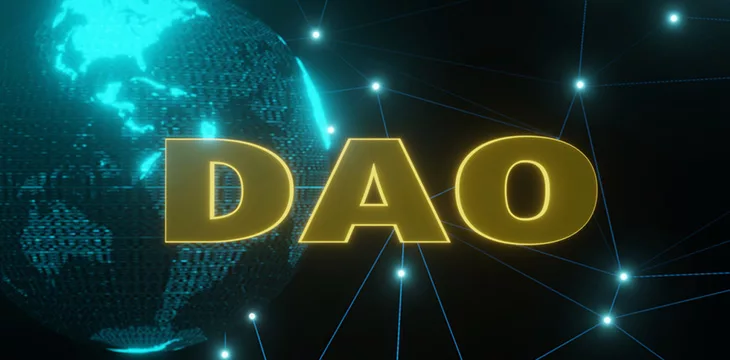|
Getting your Trinity Audio player ready...
|
The United Nations Internet Governance Forum (IGF) Dynamic Coalition on Blockchain Assurance and Standardization (DC-BAS) has confirmed plans to begin a pilot bordering on decentralized autonomous organizations (DAOs) to explore new use cases.
The IGF stated that the pilot will focus on applying DAO principles in the public sector to establish transparent governance structures. The pilot, a collaborative project involving multi-stakeholder groups within the IGF, will concern itself with real-world applications for DAOs.
DAOs are member-owned communities leveraging blockchain technology and smart contracts for decision-making without a centralized authority. Members or token holders participate in the organization’s decision-making process by casting votes with the DAO’s activities accessible via distributed ledgers.
While exact details remain unclear, the pilot will see participants engage in high-level discussions with public sector organizations, blockchain experts, and government officials. At the end of the studies, the IGF will release a report and a uniform framework for entities keen on pivoting to DAOs.
“This initiative signifies a pivotal step toward establishing innovative and secure governance models, ensuring that blockchain technology can be harnessed for the benefit of public sector organizations,” said Dino Cataldo Dell’Accio, CIO of the UN Joint Staff Pension Fund.
“The UN IGF DC-BAS remains committed to fostering collaboration, transparency, and the responsible adoption of emerging technologies,” Dell’Accio added.
Hosted by non-profit organization Government Blockchain Association (GBA), the IGF’s Dynamic Coalition says its membership is open with stakeholders in the Central Bank of Nigeria (CBN) and Banco Central do Brasil.
Ethereum Layer 2 solution Gosh, the underlying technology to be used for the pilot project, was provided by the GBA and designed to allow developers to deploy smart contracts on distributed ledgers for free. The IGF’s initiative will interface with other GBA working groups, including Legal and Legislative, DAO Governance, and Digital Asset Management.
The UN and emerging technologies
The UN has shown a strong affinity for integrating blockchain into its processing, underscoring its intention to equip over 22,000 of its employees with on-chain skills. Led by the UN Development Programme (UNDP), the ambitious upskilling program will train employees on blockchain applications in asset tokenization, finance, and digital identities.
Officials at the UN World Food Programme (WFP) have pointed to the benefits of incorporating blockchain into their humanitarian process as key to achieving their objectives. They cite the perks of transparency, data immutability, and privacy as top reasons for pivoting to blockchain in aiding refugees in war-torn areas.
Watch Craig Wright Q&A: DAO is a partnership but with no liability protections

 07-06-2025
07-06-2025 





